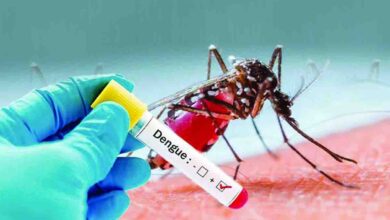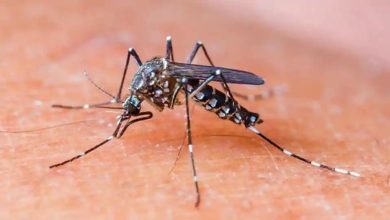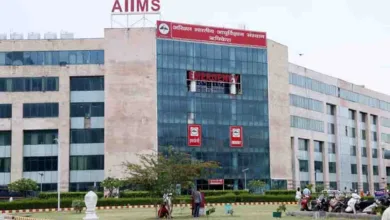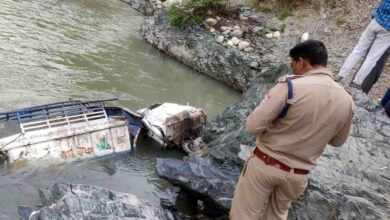Train general public in CPR to reduce sudden cardiac arrest deaths, stress medical experts
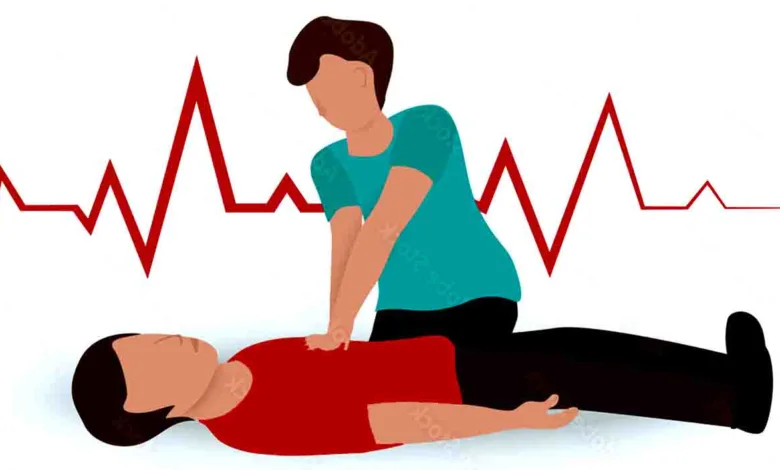
Friday, 07 July 2023 | Anupma Khanna | DEHRADUN
Eight out of ten people in India get cardiac arrest outside of a hospital—home, public places, at work or wherever else it occurs. More than 90 percent of them die. Deaths of celebrities in their 40s and 50s like actors Siddharth Shukla, Puneeth Kumar, Nitesh Pandey and singer KK have highlighted that sudden cardiac arrest (SCA) is increasingly killing younger adults in our country. SCA often occurs without any warning. The scenario is no different in Uttarakhand, caution medical experts.”Out-of-hospital cardiac arrest (OHCA) is a major health problem in Uttarakhand, like in the rest of India. The survival rate is less than 10 percent. Whether a person suffering from sudden cardiac arrest can be saved or not depends largely on early recognition and intervention, every minute counts,” notes the Senior Consultant, Arihant Hospital Dr Vimal Pandita.
Against this backdrop, there is a massive need to train the general public in the easy-to-learn lifesaving technique of cardiopulmonary resuscitation or CPR, emphasize medical experts. Only two percent of people in India today are trained in CPR. According to Dr Pandita, who has been advocating community CPR education programs, “It is very easy for people to get trained in CPR, which can help save the life of a stranger or a family member. Given by someone near a cardiac arrest victim, this is also known as bystander CPR.People who receive prompt and correct CPR are two to three times more likely to survive. However, most people in Uttarakhand and the rest of India do not know how to recognize and respond in a cardiac arrest emergency.”
A recent case in point- on June 30, 24-year old Subhash suffered a cardiac arrest and collapsed while testifying in a court in Bhopal. Court staffer Bhupender Singh who had received CPR training only a week ago immediately administered CPR to the young victim. After around two minutes of CPR, Subhash’s heartbeat and breathing returned. The medical professionals who treated Subhash said that a delay of even a few minutes in giving CPR to Subhash could have made it almost impossible to save him.
Senior cardiologist and Director, Combined Medical Institute Dr R K Jain told The Pioneer,”In a cardiac arrest, CPR is critical to begin the chain of survival.CPR is the manual application of chest compressions and rescue breaths to cardiac arrest victims to maintain blood flow to vital organs till professional medical help is made available. The longer the brain is deprived of oxygen, the more severe the damage will be.”
India is a developing country and Uttarakhand, being a hill state, faces even more challenges. For example, the risk of sudden cardiac deaths increases at the high altitude regions of Char Dham due to a combination of the strenuous hike, cold weather and lower oxygen levels.
A study on out- of-hospital cardiac arrest (OHCA) resuscitation outcome in North India, published in the World Journal of Emergency Medicine, points out that although 56.5 per cent of OHCA events were witnessed by a bystander, only1.3 per cent of these arrests received bystander CPR.
“Such a low frequency of bystander CPR is one of the major causes of low survival rates after an OHCA event. Unfortunately in India, bystander CPR rates have remained very low, due to lack of awareness of basic CPR techniques among the communities.Improving community bystander CPR rates is an important step towards improving OHCA survival. There is an urgent need of national initiatives to strengthen bystander resuscitation attempts and advanced care by educational campaigns ( brief educational videos, community awareness programs) and implementing school-based training,’’highlights the research.
Additional Director, Secondary Education, Uttarakhand, Mahavir Singh Bisht told The Pioneer, “Currently, there is no policy for conducting CPR training programmes in schools in our State but it is an excellent suggestion. I shall discuss it with higher officials and hope for positive outcomes in this regard.”
In Sweden, 70 per cent of people who get out-of-hospital SCAs are given CPR. This is attributed to mass CPR training and the introduction of an app called ‘SMS Lifesavers’. In The New England Journal of Medicine, researchers have stated that this mobile notification system has ‘proved very invaluable’ in saving lives by notifying trained volunteers to perform CPR in cardiac arrest patients till medical help arrives.
Back in December 2018, the then Vice-President of India, M Venkaiah Naidu had also underscored the importance of training Indian citizens in CPR. Naidu had said, “There is law in many countries to train high school students. Perhaps, we too need a law to make CPR training compulsory in schools. We need to impart this training to all personnel in public sector and private companies. We need to build an India where every citizen is capable of saving others in times of life-threatening distress.”



